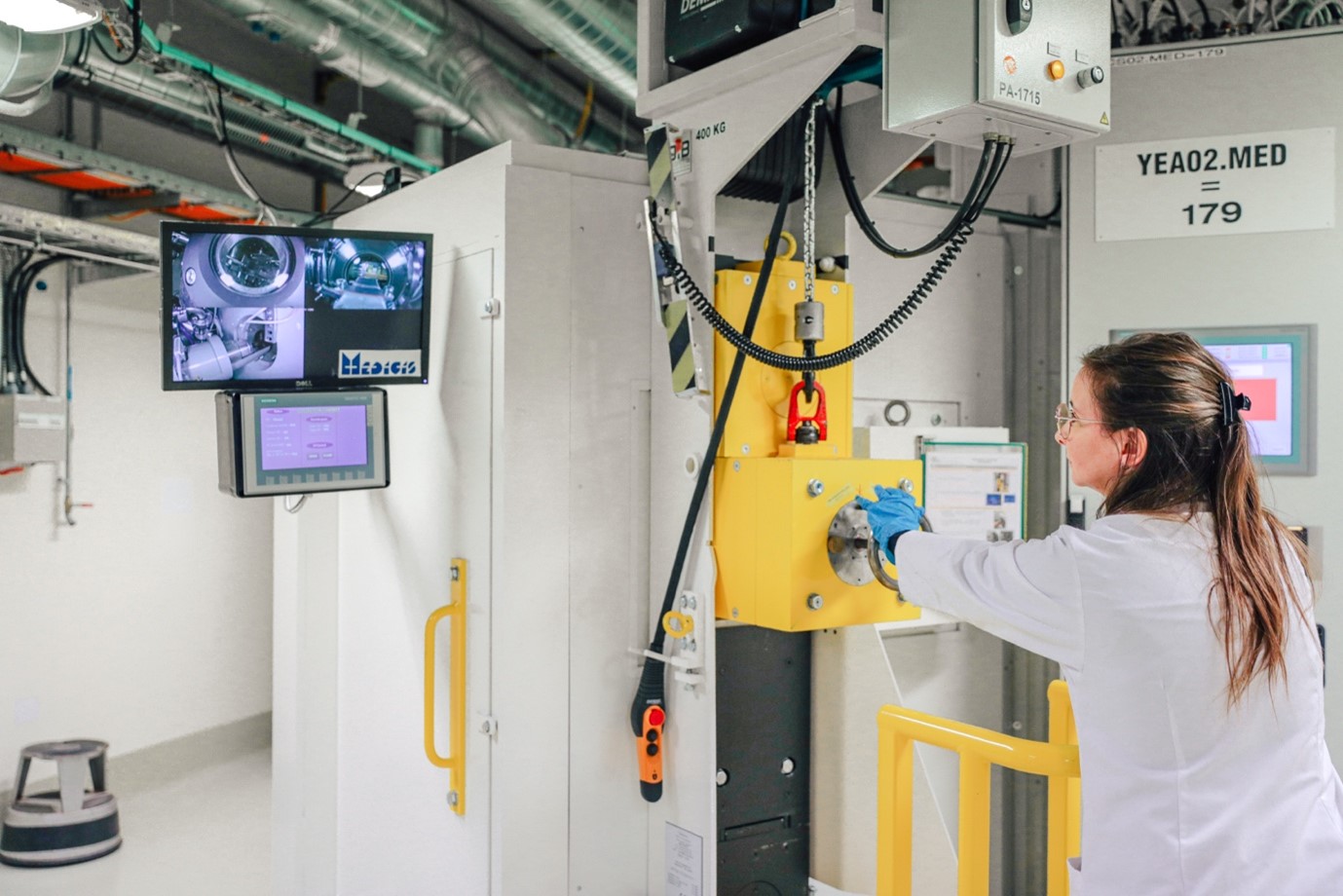CERN-Medicis
Innovative ideas and technologies from physics have contributed to great advances in the field of medicine over the last 100 years, since the advent of radiation-based medical diagnosis and treatment and following the discovery of X-rays and radioactivity.
Radioisotopes are already widely used by the medical community for imaging, diagnosis and radiation therapy. However, many of those currently used do not combine the most appropriate physical and chemical properties and therefore do not target tumours closely enough. In some cases, a different type of radiation could be better suited.
CERN-MEDICIS (Medical Isotopes Collected from ISOLDE) is a unique facility designed to produce radioisotopes with the right properties to enhance the precision of both patient imaging and treatment, and provide the opportunity to radically improve the success of cancer treatment. It will expand the range of radioisotopes available for medical research – some of which can be produced only at CERN – and send them to hospitals and research centres in Switzerland and across Europe for further study.
Great strides have been made recently in the use of radioisotopes for diagnosis and treatment, and MEDICIS will enable researchers to devise and test unconventional radioisotopes with a view to developing new approaches to fight cancer.
CERN-MEDICIS demonstrates again how CERN technologies can benefit society beyond their use for our fundamental research. With its unique facilities and expertise, CERN is committed to maximising the impact of CERN technologies in our everyday lives.- Frédérick Bordry, former CERN Director for Accelerators and Technology
